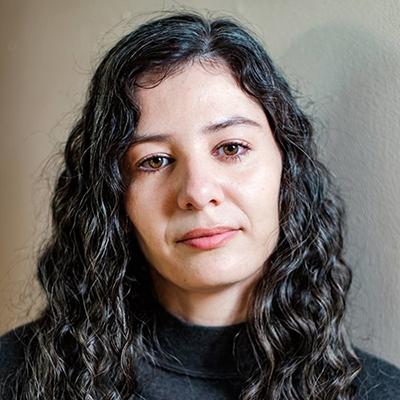
Bruna Dantas Lobato was born and raised in Natal, Brazil. A graduate of Bennington College, she received her MFA in Fiction from New York University and is currently an Iowa Arts Fellow and MFA candidate in Literary Translation at the University of Iowa. Her stories, essays, and translations from the Portuguese have appeared in Harvard Review, Ploughshares online, BOMB, A Public Space, and elsewhere. She is a 2018 A Public Space Fellow and a 2019 PEN/Heim winner.
Izzy Casey: A big bird told me that you are working on a novel titled Diversions (that big bird being issue “No. 27” of A Public Space, which features its first chapter.) Let’s start with Diversions. What made it alive inside your head, and through writing it, how has it diverged from its initial intent?
Bruna Dantas Lobato: I grew up in Brazil speaking Portuguese and moved to Vermont to be an English major in college some eight years ago. This means that I’ve been practicing ways of communicating with loved ones while I’m in a country they’ve never been to from a very young age. I’d call my mom on Skype almost every night from my dorm room or from the library to tell her about my day, and I was proud of the fact that we managed to stay close even with all the distance. We were always just a click away from each other. But there were also times when unexpected things stood in our way: it was too late to call her because of the time difference, or I couldn’t get my internet to work, or her power had gone out because of the rain. These connection issues, both literal and figurative, would become the central theme of my novel-in-progress—the diversions from the title. When I first began working on the project, I was writing about a family of four trying to keep their relationship intact through the internet. Later, I realized that my best writing happened in the more intimate chapters that showed a deeper sense of connection and disconnection, so I got rid of everybody else and only kept the mother and daughter. I liked that they talked like friends sometimes, whispering to each other in the dark.
IC: The world of the narrator is depicted through her interactions with her mother via Skype; as readers, the information we gather is the information shared between the two. Yet, what is left unsaid reveals as much about their dynamic as what is said. Can you speak more to this?
BDL: I think of the webcam on Skype as this small opening through which my characters can access each other’s lives. That’s why I wanted the reader to get only what little they get of each other: the awkward conversations that go nowhere, the strange angles, everything. It might feel unsatisfactory to talk like this all the time, but it’s also beautiful just as it is, without any embellishment or editorializing. Here’s a mother trying to talk to her daughter over the internet and all she gets is half her face. I don’t need to say much more than that. We immediately understand that this mother will always miss the other half, and that she won’t get to have it.
IC: Back to the title, Diversions. As a writer, do you think language functions more as a diversion as opposed to getting to the heart of the matter. Or perhaps, somewhere in between?
BDL: Sometimes I think of this project as a novel-in-dialogue where everyone speaks at an angle. They’re trying to say some piece of truth, but they’re not there yet. That’s why they need an entire novel to convey what they’re saying in its totality. The distractions might seem random, but they accumulate meaning over time. To me, the heart of the matter is this cumulative effect.
IC: As writers, we hoard a strict set of rules in our heads. A short story should do this and this and not that. When it comes to your writing, do you find that rules are meant for breaking? If so, what rules have you broken through writing this novel?
BDL: The story I’m trying to tell is too full of fragmentation and displacement to have a conventional narrative structure, so I need to use my intuition to learn how it needs to be told. At times it required a way of telling that I hadn’t really seen yet. That was both bad and good news: it meant that I needed to learn a different way of writing it from scratch, but it also meant that I might get to write something new in the process. In the end, none of my chapters required the typical story structure with a conflict, climax, and all that. I had to feel their texture and work on their shape until I felt that they worked on their own terms. I know when the story is done because I recognize the way it moves me. That’s the only familiarity that’s required.
